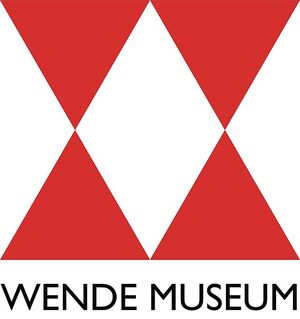Thomas Mann House Events Archive
October 2024
Exhibition "Democracy Will Win!" at Lafayette College
Lafayette College (317 Hamilton St, Easton, PA 18042)

Information
Join the Lafayette College for the traveling exhibition "Thomas Mann: Democracy Will Win!"
The exhibition commemorates the series of lecture tours that the Nobel Laureate conducted throughout the Unites States from the late 1930s to the mid-1940s. The first of these tours began at Northwestern University, where more than 4000 people came to hear him speak about the fundamental reasons for liberal democracy. “It is a terrible spectacle when the irrational becomes popular,” Mann said in a speech at the Library of Congress in 1943, and he drew on his considerable powers of thought and expression to counter the sources of this spectacle through his confident motto: “Democracy will win.”
The like-named exhibit is divided into two parts: the first charts the changes in Mann’s political views, while the second connects Mann’s lectures tours to current political situations in both Europe and the United States.
The galleries are open Wednesdays to Sundays, 12-5 pm.
Find more information here.
Partner
The traveling exhibition Thomas Mann: Democracy Will Win! is a collaboration between the German Department at Lafayette College, and the Thomas Mann House Los Angeles.
Spatial Hour series with Ulrike Klinger: Generative AI, Social Media, and the Super Election Year of 2024
University of California, Santa Barbara (Phelps 3512, CA 93106-4060)

Info
Publicly available tools like ChatGPT, Dall.E, or Midjourney enable internet users to create texts and images from prompts without programming skills or expert knowledge. They also add to the strategic arsenal of political campaigns, for instance by providing cheap visual content without copyright issues. In an increasingly visual campaign environment on platforms like Instagram or TikTok, politicians and political parties use these images to illustrate their ideologies-and, potentially, to create and spread disinformation.
Like many technologies before, the rise of generative Al is accompanied by fierce public debates along the lines of "glory" and "doom", various dichotomous predictions ranging from existential fears to instrumental concerns. With regards to election campaigns, Al arrives in times of democratic backsliding and an epistemic crisis, feeding into worries about the future of public spheres and citizen's perceptions of a shared reality.
Can the widely available Al tools, in combination with the (so far) almost unregulated distributive power of social media platforms, unleash the perfect storm especially in a year when more than half of the world's population has been called to vote in over 60 elections?
Participant
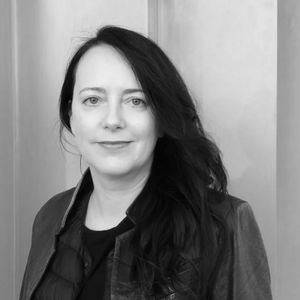
Ulrike Klinger is a communication scientist and since 2020 Chair of Digital Democracy and member of the Board of Directors of the European New School of Digital Studies at the European University Viadrina in Frankfurt/Oder. She is an associate researcher at the Weizenbaum Institute for the Networked Society in Berlin, where she led the research group “News, Campaigns, and the Rationality of Public Discourse” until 2020. She researches digital political communication, technology and power, and the transformation of digital publics.
Partner
The talk is organized by UC Santa Barbara.
Elections 2024: Freedoms and Flashpoints - Elections Around the Globe in 2024
Bunche Hall, UCLA (11282 Portola Plaza, Los Angeles, CA 90095, USA)

Info
As part of the Democracy, Freedom and Truth Series of UCLA's International Institute, the panel discussion Freedoms and Flashpoints: Elections Around the Globe in 2024 invites four experts, among them 2024 Thomas Mann Fellow Ulrike Klinger, to speak about international elections this year.
Four panelists will each speak briefly about important elections in India, Mexico, Latin America and the European Union, respectively, and the issues that these elections have brought to the fore. The audience will then be invited to participate in a larger conversation, considering what these and other electoral flashpoints reveal about the current shifting world order in advance of the U.S. presidential election in November 2024.
Participants
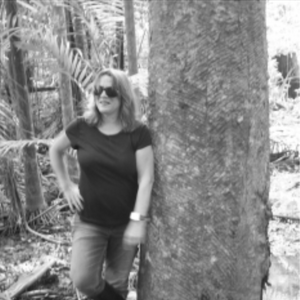
Susanna Hecht has academic appointments in the Luskin School of Public Affairs and the Institute of the Environment and Sustainability at UCLA. She also serves as director of the Center for Brazilian Studies of the Latin American Institute. She is proficient in numerous languages and her publications focus focused on such far-reaching topics as migration, urbanization, the Amazon and natural resources in South America.

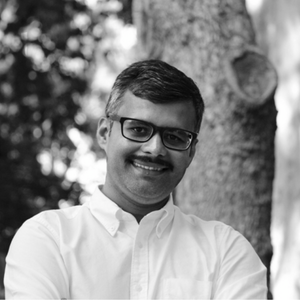
Tejas Parasher, assistant professor of political theory, has a joint appointment in the department of political science and the International Institute at UCLA. He is the author of “Radical Democracy in Modern Indian Political Thought” (Cambridge, 2023). His research explores the political philosophy of collective self-determination, political representation and statehood.

Gaspar Rivera-Salgado is director of the UCLA Center for Mexican Studies and project director at the UCLA Labor Center, where he is a member of the core faculty in the UCLA labor studies program. He directs the Global Labor Initiative with an emphasis on cross-border, worker-to-worker collaborations between the U.S., Mexico and Canada.
Partners
The panel discussion is organized by UCLA International Institute and UCLA Department of Education & Information Studies.

Rethinking Democracy: Megatrends and Their Challenges in Germany and Beyond
Online

Information
On the occasion of the exhibition Thomas Mann: Democracy Will Win! displayed at Lafayette College, 2024 Thomas Mann Fellow, political scientist Andrea Römmele will give a lecture on democracy, megatrends and their challenges through a transatlantic lens.
Megatrends shape our societies: climate change, urbanization, digitalization, and migration, to name just a few. What are the challenges of these megatrends for today's democracies? How can democratic goverments tackle them? Andrea Römmele focuses on Germany to analyze how current political parties cope with these challenges. How do we explain the growing support for the far-right Alternative for Germany (AfD), and are there parallels to the United States?
Participant

Andrea Römmele is Professor of Political Communication and Dean and Vice President at the Hertie School in Berlin. She holds a master’s degree from San Francisco State University, a doctorate from the University of Heidelberg, and a habilitation from Freie Universität Berlin. Römmele’s research interests include digital democracy, elections, and electoral campaigns and parties. For Römmele, a central issue is mediating between science and practice. One of her current projects is the “Democracy Report,” developed jointly with ARD, which she moderates herself.
Partners
The talk is organized by the Max Kade Center for German Studies, Lafayette College.
Opera & Democracy: bauhaus music 2024
the temporary bauhaus-archiv (Knesebeckstraße 1, 10623 Berlin)

Information
Freedom is more relevant than ever before and is the central theme of the 2024 “Bauhaus Music” festival. With a spotlight on “exile”, the three-day festival will highlight artistic and political positions and forms of expression surrounding the concept of freedom, past and present. The moderated concerts include works by Arnold Schönberg, Kurt Schwitters, Johann Sebastian Bach, Béla Bartók, Alban Berg, Stefan Wolpe, Cathy Milliken and Ruth Crawford Seeger. Numerous artists and renowned soloists like Claudia Barainsky, Kolja Blacher, Gunnar Brandt-Sigurdsson and Jocelyn B. Smith, and the Deutsches Kammerorchester Berlin will come together over three days to explore the musical life and work at the Bauhaus.
Programs
Piano: Michal Friedländer
Bariton: Noam Heinz
Sopran: Alma Sadé
Piano: Cathy Milliken
Vocals: Jocelyn B. Smith
Lead: PD Dr. Kai Hinrich Müller
Moderation: Cathy Milliken, Kai Hinrich Müller, Karl-Heinz Steffens
Partner
An event in cooperation with the bauhaus-archiv
What Moves an Electorate? Political Narratives in a Polarized World
UCLA School of Law (385 Charles E Young Drive East, Los Angeles, CA 90095)
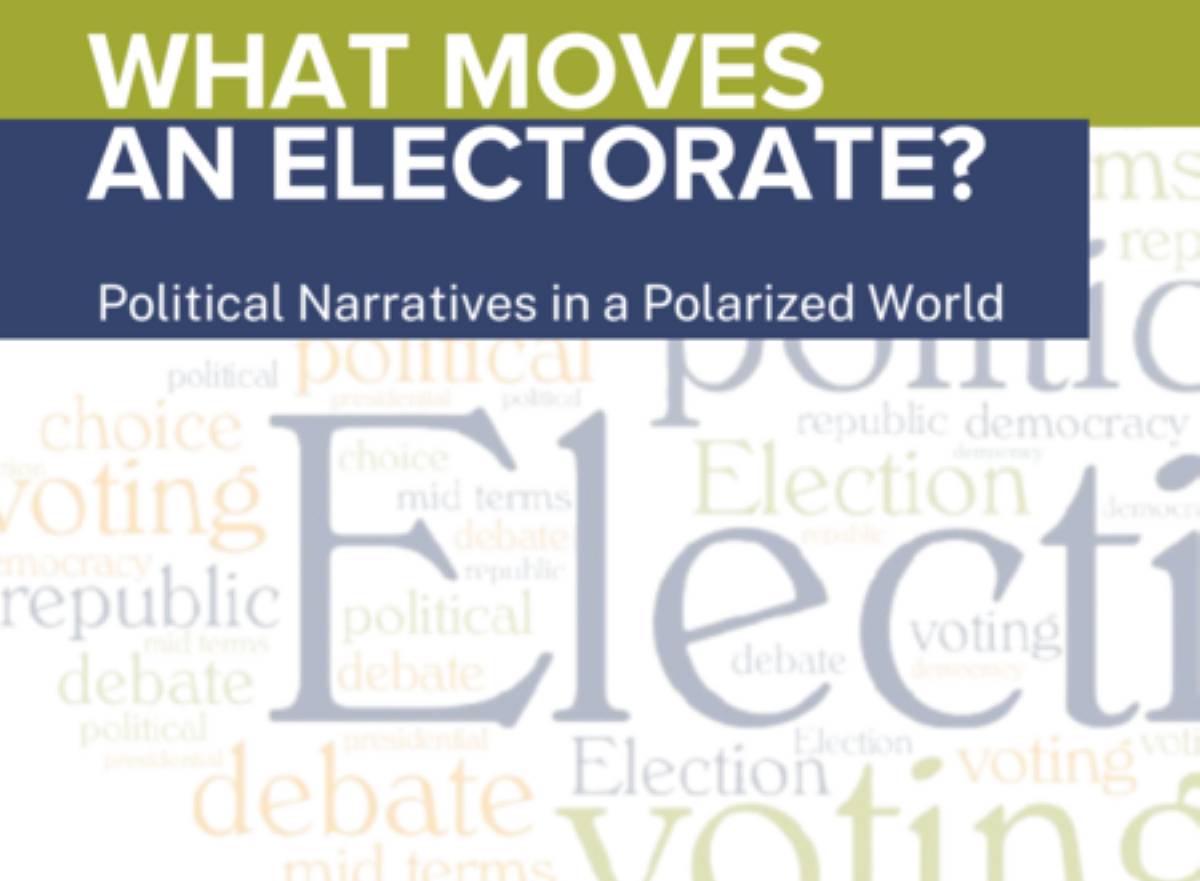
Information
2024 Thomas Mann Fellow, political scientist Andrea Römmele and Lynn Vavreck, Professor of American Politics and Public Policy at UCLA, discuss what moves the electoral needle in the current polarized political climate. The conversation is moderated by Alexandra Lieben, Deputy Director of the Ronald W. Burkle Center for International Relations.
Elections have shown that voters can move, between candidates but also to vote at all. Do we know what type of political messaging moves an electorate, what resonates, what persuades? It is an age-old question that has occupied campaign and communication strategists, politicians, political advisors, and media experts, among others, since political campaigning began. Celebrity endorsements are often courted and always gratefully received. But to what extent can endorsements by celebrities such as Taylor Swift, Dick Cheney or Liz Cheney actually move the needle?
In an environment where politics appear calcified, where communication is hampered by disinformation and by extreme polarization, where issues are wrapped up in questions of identity and personal values, both notoriously hard to change - what can make the difference? Is there something we can learn from recent elections elsewhere, such as in Europe? What are we not seeing, what are we not understanding?
Participants

Andrea Römmele is Professor of Political Communication and Dean and Vice President at the Hertie School in Berlin. She holds a master’s degree from San Francisco State University, a doctorate from the University of Heidelberg, and a habilitation from Freie Universität Berlin. Römmele’s research interests include digital democracy, elections, and electoral campaigns and parties. For Römmele, a central issue is mediating between science and practice. One of her current projects is the “Democracy Report,” developed jointly with ARD, which she moderates herself. During her Thomas Mann Fellowship in Los Angeles, she worked on megatrends and democracy. Her most recent book Demokratie Neu Denken (Rethinking Democracy) was published in September 2024.
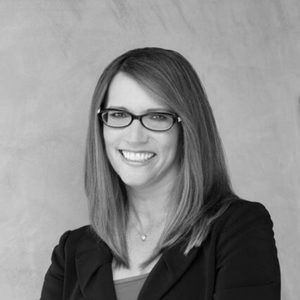
Lynn Vavreck, UCLA’s Marvin Hoffenberg Professor of American Politics and Public Policy, is an expert on campaigns, elections and public opinion, with an emphasis on how candidate behavior affects voters. She has researched campaign advertising, survey methods, politics and the media, and how the state of the economy affects elections. Vavreck is co-author of The Bitter End: The 2020 Presidential Campaign and the Challenge to American Democracy, which assessed why the campaign’s aftershocks will reverberate for decades to come. She is also the co-author of “Identity Crisis: The 2016 Presidential Campagin and the Battle for the Meaning of America. Both books drew observations and insights from Nationscape, a wide-ranging weekly public opinion survey of the American electorate for which Vavreck is a principal researcher.
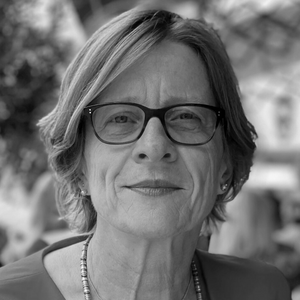
Alexandra Lieben is the Deputy Director of the Ronald W. Burkle Center for International Relations and an affiliated faculty member of the Promise Institute for Human Rights at the UCLA School of Law. A certified mediator, she teaches constructive communication, alternative dispute resolution, public dialogue, cultural competency, international conflict resolution, and community and economic development to undergraduate and graduate students at UCLA.
Partners
The talk is organized by the UCLA Burkle Center for International Relations and the UCLA Luskin School of Public Affairs Department of Public Policy.
Threats to Democracies – Media and the 2024 Elections in Transatlantic Perspective
University of North Carolina at Chapel Hill (Manning Hall, 216 Lenoir Dr Suite 100, Chapel Hill, NC 27599)
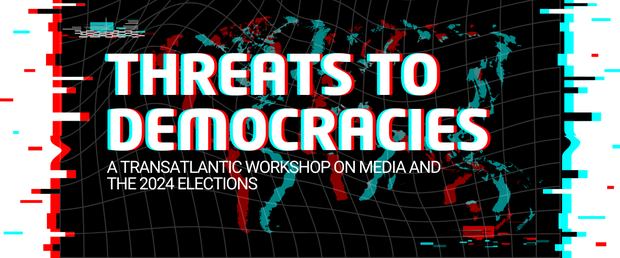
Information
On October 23 & 24, the Center for Information, Technology, and Public Life of the University of North Carolina at Chapel Hill is hosting the two-day event Threats to Democracies: A Transatlantic Workshop on Media and the 2024 Elections, in partnership with UNC Global Affairs, Thomas Mann House Los Angeles, and the UNC Center for European Studies, and co-sponsored by the UNC School of Information and Library Science. This event will bring together renowned experts to discuss the critical challenges to democracies in the U.S. and Europe, with a particular focus on media, technology, and election dynamics.
We are at a pivotal moment for global democracies. Not since the early 20th century have consolidated democracies in Europe and North America — and well beyond — faced serious threats to their legitimacy from external and internal actors. Externally, this includes information warfare conducted by non-democratic powers seeking to undermine democratic and liberal consensus through propaganda and mis- and disinformation. Internally, in countries from the United States and Italy to Germany and France, it includes the rise of anti-democratic leaders, parties, and movements, often based on nativist, exclusionary identitarian politics in backlash to migration and strides towards equality of historically non-dominant racial, ethnic, and religious groups.
To date, two bodies of largely separate academic scholarship have analyzed these dynamics — and developed interventions to combat them. On the one hand, scholars of political institutions and political psychology study parties, coalitions, and public opinion, including through comparative methods, while often failing to address rapid changes in media in the context of democratic backsliding. On the other, communication and media scholars have extensively analyzed media and digital propaganda, mis/disinformation, social media polarization, and networked far right movements, while rarely linking these things to political institutions.
The aim of this initiative is to bring these disparate threads of research together in order to more comprehensively understand and analyze democratic threats — and invest in the political institutions democracies rely on. Above all, we seek to develop public-facing research that informs public debate, media and platform policies, and interventions from civil society and policymakers.
Please note: The workshop is by invitation only, but all are welcome to attend the Fireside Chat on Thursday at 5pm. Find more information here.
Programs
Wednesday, October 23
This panel explores the new challenges democracies on both sides of the Atlantic face from media and technological changes, with an emphasis on elections.
Moderator:
- Daniel Kreiss, Principal Investigator, CITAP & Professor, UNC Hussman School of Journalism and Media
Panelists:
-
Francesca Tripodi, Principal Investigator, CITAP & Associate Professor, UNC School of Information and Library Science
-
Guido Zurstiege, Professor for Media Studies, University of Tübingen
-
Tobias Wilke, Assistant Professor of German, UNC Department of Germanic & Slavic Languages & Literatures
-
Gregor Asmolov, Lecturer in Digital Entrepreneurship and Marketing, King's College London
-
Jianing Li, Assistant Professor of Communication, Rutgers University Department of Communication.
This panel focuses on how social cleavages around race, ethnicity, religion, and immigration are weaponized in political narratives and elections.
Moderator:
- Ulrike Klinger, Professor for Digital Democracy, European New School of Digital Studies
Panelists:
-
Meredith Clark, Principal Investigator, CITAP & Associate Professor, UNC Hussman School of Journalism and Media
-
Jen Schradie, Associate Professor, Center for Research on Social Inequalities, Sciences Po
-
Priscilla Layne, Director of the UNC Center for European Studies & Professor of German, UNC Department of Germanic & Slavic Languages & Literatures
-
Sarah J. Jackson, Associate Professor, Annenberg School for Communication, University of Pennsylvania & Co-Director, Media, Inequality & Change Center
-
Frank Baumgartner, Professor of Political Science, UNC Department of Political Science
-
Robert Jenkins, Teaching Professor, UNC Department of Political Science
Thursday, October 24
This panel examines the resurgence of authoritarianism and anti-democratic politics, with a focus on how media and technology facilitate these trends.
Moderator:
- Ulrike Klinger, Professor for Digital Democracy, European New School of Digital Studies
Panelists:
-
Alice Marwick, Director of Research, Data & Society
-
Johannes Gerschweski, Research Fellow, Department of Global Governance, WZB Berlin Social Science Center
-
Jakob Norberg, Professor of German Studies, Duke University
-
Christiane Lemke, Emerita Professor of Political Science and International Relations, UNC Department of Political Science
-
Annett Heft, Research Project Lead, Institute for Media and Communication Studies, Freie Universität Berlin
This panel addresses the role of media in increasing polarization, disinformation, and division during election campaigns.
Moderator:
-
Daniel Kreiss, Principal Investigator, CITAP & Professor, UNC Hussman School of Journalism and Media
Panelists:
-
Shannon McGregor, Principal Investigator, CITAP & Associate Professor, UNC Hussman School of Journalism and Media
-
Frank Esser, Professor of International & Comparative Media Research, Universität Zürich.
-
Pola Lehmann, Research Fellow, Center for Civil Society Research, WZB Berlin Social Science Center
-
Stanislav Shvabrin, Russian Program Director & Associate Professor of Russian, UNC Department of Germanic & Slavic Languages & Literatures
-
Radik Lapushin, Associate Professor of Russian Literature, UNC Department of Germanic & Slavic Languages & Literatures
- Chad Bryant, Professor, UNC Department of History
Freedom Forum Conference Center, Carroll Hall
A fireside chat on “Media Coverage of the 2024 U.S. Presidential Election: The View from Germany and the United States”.
With:
- Tressie McMillan Cottom, a New York Times columnist, Principal Investigator, CITAP & Associate Professor, UNC School of Information and Library Science
- Juliane Schäuble, U.S. Correspondent, Tagesspiegel Newspaper
Moderated by:
- Daniel Kreiss, Principal Investigator, CITAP & Professor, UNC Hussman School of Journalism and Media
RSVP here!
Partners
UNC Center for Information, Technology, and Public Life, in partnership with UNC Global Affairs, Thomas Mann House Los Angeles, and the UNC Center for European Studies, and co-sponsored by the UNC School of Information and Library Science.

Student Council on "Democracy and Vulnerability"
Wende Museum (10808 Culver Blvd Culver City CA 90230)
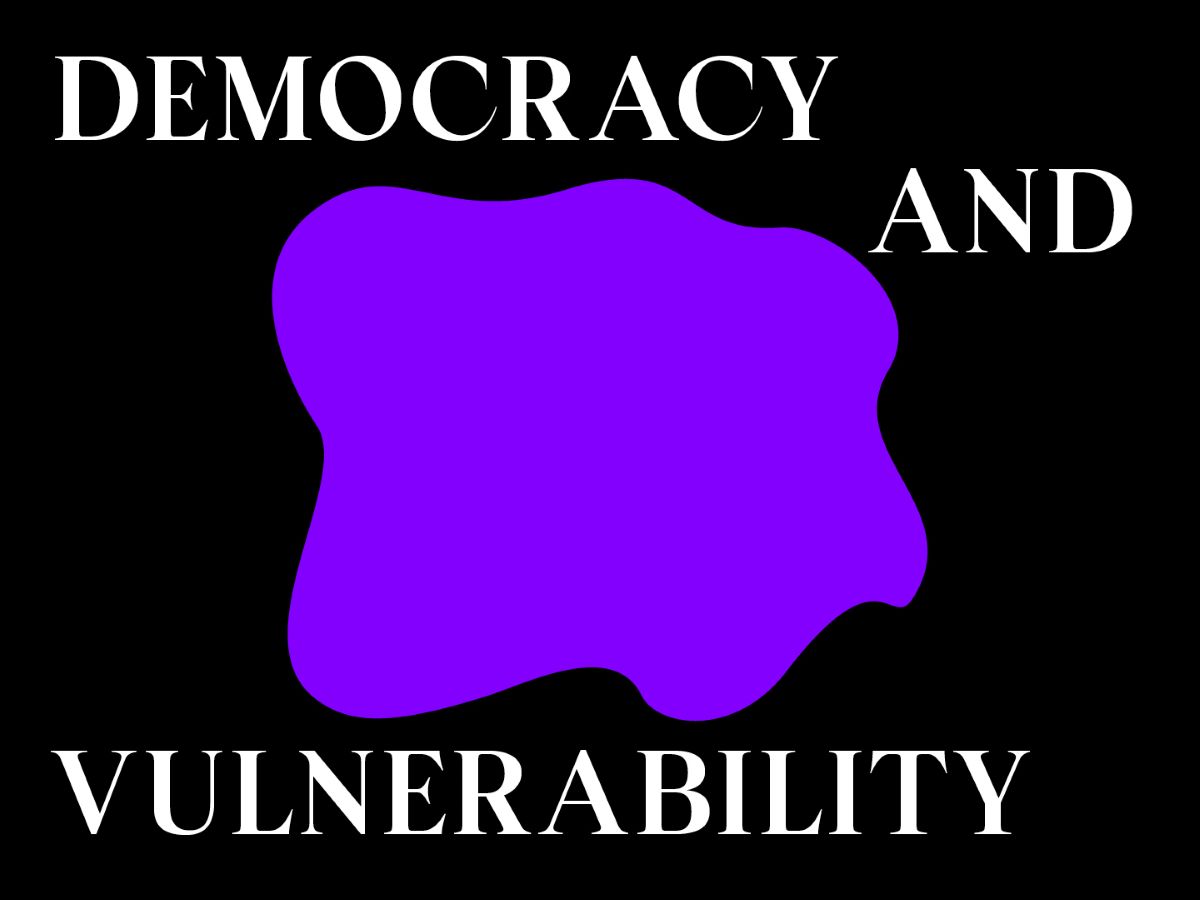
Information
In a special in-person episode this fall, join the Wende Museum, the Thomas Mann House, and dublab radio for the tenth program in the series on the current state of democracies at the Wende Museum's new A-Frame Theater on October 26! How should a democracy deal with its own vulnerabilities? How do democracies need to evolve to deal successfully with increasing global levels of ecological crisis, geopolitical tensions, economic disparities, and culture wars? How much vulnerability can a democracy endure? The guest speakers for our special in-person October program are Jonathan Homola and Marla Stone; they will be discussing the global rise of far-right populism.
The Student Council consists of a team of highly engaged, talented, and diverse undergraduate and graduate students who invite prominent guest speakers to discuss topics relating to society, politics, culture, and art. In conversation with academics, journalists, politicians, and artists, the students will explore the various threats to democratic institutions and principles worldwide, as well as strategies to potentially overcome these threats.
Participants
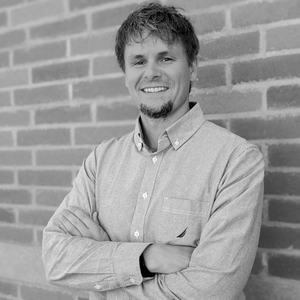
Jonathan Homola is an Assistant Professor in the Department of Political Science at the University of California, Los Angeles. Most of his research deals with questions of representation and electoral preferences in Western democracies. Among his main fields of interest are xenophobia and support for right-wing extremism.
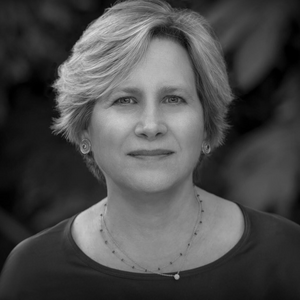
Marla Stone is professor of history at Occidental College and specializes in the history of fascism and in questions of dictatorship and genocide in the modern era. Stone’s work emphasizes the relationship among culture, politics, and the state in the 20th century. She has published on a variety of topics in European history, including Italian Fascist cultural politics, anti-communism, the contemporary far right in Europe, Italian Holocaust memory culture, and the continuities and ruptures between historic fascism and its contemporary manifestations. She has taught at Occidental College since 1994 and received her M.A. and Ph.D. from Princeton University.
Previous Episodes
Find previous interviews on YouTube, as podcasts on dublab radio or written recaps by our students on the Thomas Mann House blog.
All members
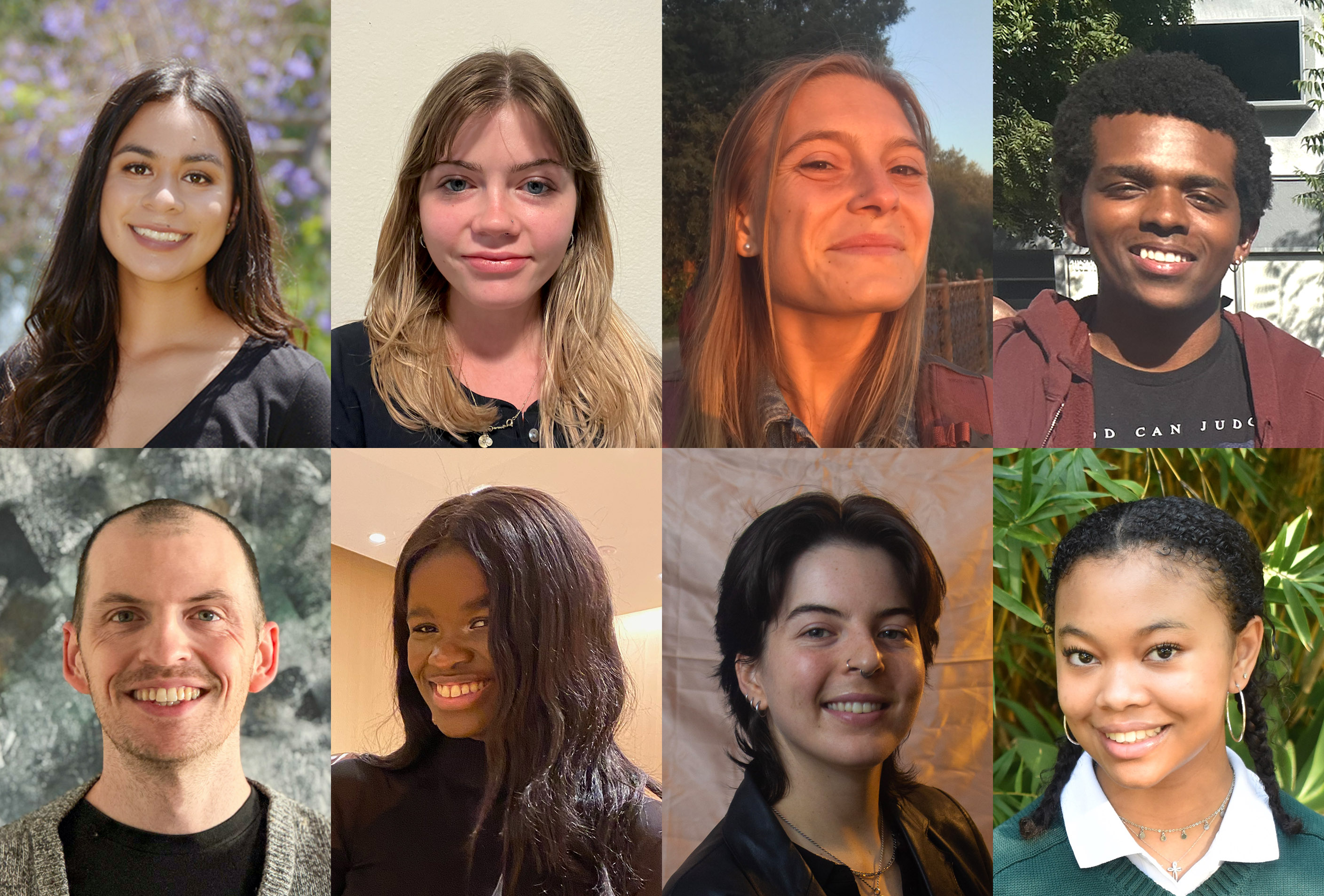
Sara Abrahamsson is a fourth-year student at UCLA studying Art History and French. As a culmination of her artistic and academic interest in political graphics, Sara is currently writing her senior thesis paper on the internationalist poster art of post-revolutionary Cuba. Upon graduating, she plans to continue working in museums before pursuing graduate studies in Art History or Art Conservation.
Amy Cabrales is a First-Generation fourth-year undergraduate student at UCLA, studying Sociology and the Russian Language. She is a Mexican-American, Los Angeles native born in Lynwood, California. Her career interests include cross-cultural education via museum work or language instruction and immigrant resettlement, while her academic interests include immigrant integration and self-identity across immigrant generations. She is anticipating returning to Almaty, Kazakhstan for the 2024-25 academic year to inform these interests and advance her Russian proficiency.
Elsa Coony is a fourth-year student at the University of California, Los Angeles double majoring in Global Studies and German. She has previously worked at the United States Holocaust Memorial Museum as both a docent and translator and is excited to join this year's council. In the future, she hopes to pursue a career in international development.
Biruke Dix is currently a 2nd year student at UCLA studying Applied Mathematics. He joined the Wende Student Council in 2024 and is deeply invested in the ever-changing properties of art as well as social habits. He hopes that he can create language and conversation that promotes the spread of cultural shifts and social justice.
Matthew Jones is a third-year PhD student in Claremont Graduate University’s Cultural Studies and Museum Studies program. His research currently explores how sites connected to authoritarian regimes function as pilgrimage destinations and what strategies states and institutions employ to reduce extremist attachment at these sites. He is thrilled to continue his training with the Wende Museum through this collaboration with the Thomas Mann House.
Emma Larson is a master's student at Columbia University's Harriman Institute of Russian, Eurasian, and Eastern European Studies. There, she focuses on the gender, social, and political history of Central Asia. Before starting at Columbia, Emma taught English in Kazakhstan with the Fulbright Program. She graduated from Williams College with degrees in History and Russian in 2021.
Zora Nelson is a current undergraduate student at New York University, where she is studying Harp Performance and Media, Culture, and Communication. As an east coaster born and raised in Philadelphia, Pennsylvania, she discovered the Wende Museum in the summer of 2022 and is honored to be a part of the council. With a passion for writing, Zora sees a future in storytelling to promote social justice.
Lexi Tooley is a current sophomore at the University of Pennsylvania majoring in Political Science and Art History, minoring in Chinese Language and Culture. She is originally from Los Angeles, California, and attended the Archer School for Girls. Lexi has been working with the Wende Museum for the past 2 years. She looks forward to continuing the search for truth and examining the vulnerability of democracy through this program!
Partners
Solidarity and Compromise
Goethe-Institut Chicago (150 N Michigan Ave, Suite 420, Chicago IL 60601)
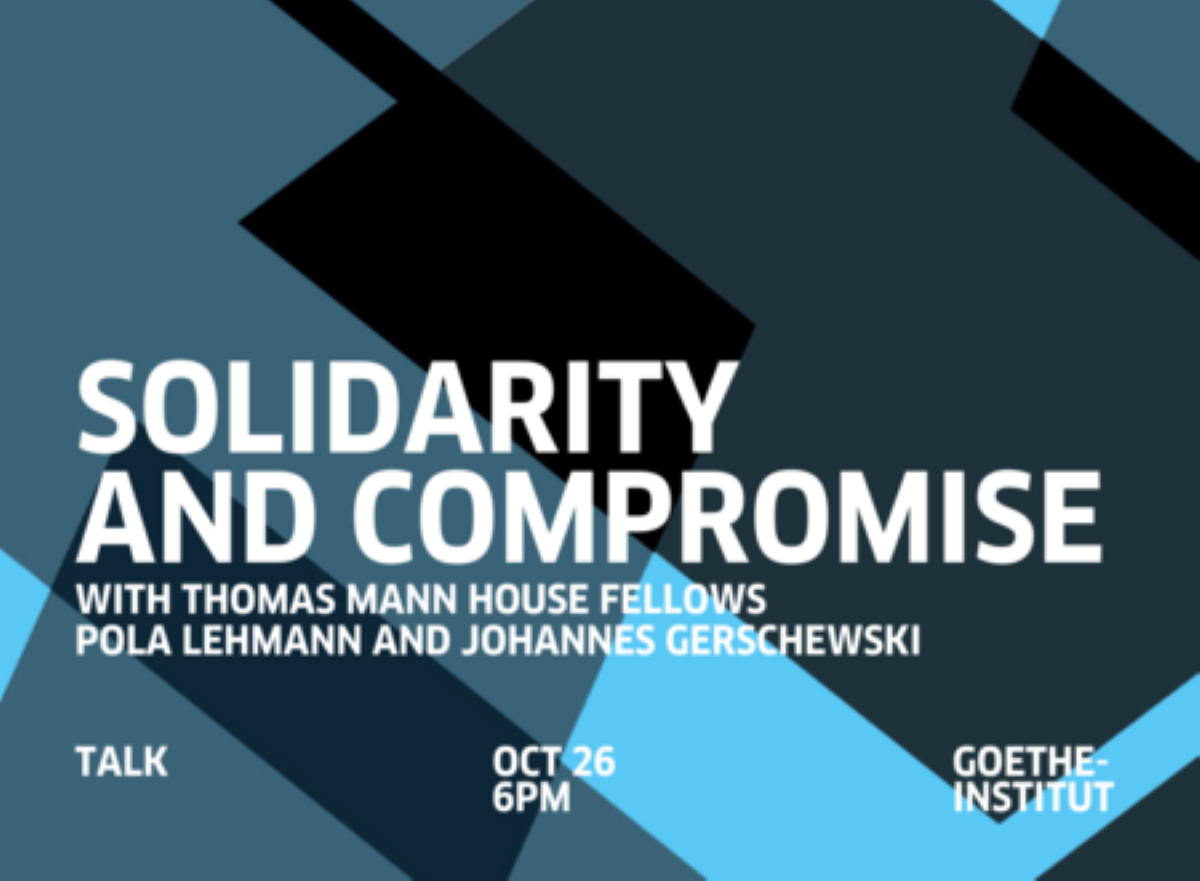
Information
Join the Goethe-Institut Chicago for this in-person discussion with Thomas Mann Fellows Pola Lehmann, Johannes Gerschewski and political scientist Jeffrey Winters who will explore the value of compromise in democratic societies.
Many democracies today are under pressure, both in countries with long established democracies, like the United States, as well as in new democracies, like Hungary and Poland. A very apparent symptom of these pressures is reflected in the way political debates are fought today. They become more and more heated and unforgiving, denying the other side to be a legitimate opponent in the debate. Discussions are being fueled by depicting the different sides as representing the right or the wrong answer, instead of presenting different but legitimate views to the issue at stake. What can keep societies together in these times and strengthen social cohesion? Solidarity can be one answer to this question.
Showing solidarity with another one’s cause can build ties between different groups in society. But solidarity is also very demanding, it requires not only to view the cause as legitimate but also as worthy. A less demanding solution is provided through political compromise. Compromise also requires to regard the other side as a legitimate representative, but one does not need to make a common cause out of it. The different sides can still disagree about the best solution to the given issue, but they respect each other views and act in the strong believe that striking a compromise between the different views, even though this means loss on both sides, is better than no compromise. But how can societies in such heated environments as we find them today create an atmosphere of mutual respect and legitimacy of the other side’s cause?
Participants
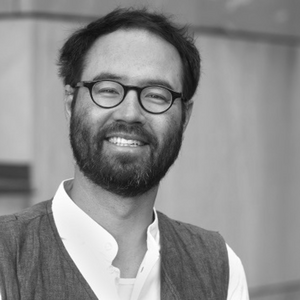
Johannes Gerschewski is a research fellow at the WZB Berlin Social Science Center and coordinates the work of the Theory Network at the Cluster of Excellence “Contestations of the Liberal Script (SCRIPTS).” He has published in academic journals including American Political Science Review, Perspectives on Politics, and Comparative Political Studies. His book on The Two Logics of Autocratic Rule was published in April 2023 by Cambridge University Press.
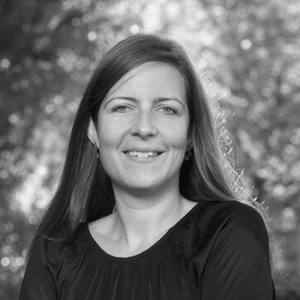
Pola Lehmann is a senior researcher at the WZB Berlin Social Science Center and co-director of the Manifesto Project. She studied administrative sciences at the Universities of Potsdam and Copenhagen. She studies democracy and democratic processes with a special focus on political parties, elections and political representation. In her dissertation, which won the Leibniz Dissertation Award in 2021, she investigated political representation and compromise in the German Bundestag.
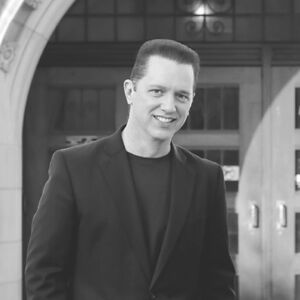
Jeffrey Winters is Professor and Director of the Equality Development and Globalization Studies program (EDGS), and past chair of the Political Science Department at Northwestern University. Prof. Winters specializes on oligarchs and elites and the role of wealth power and extreme economic inequality in a range of political systems. His forthcoming book Domination through Democracy: Why Oligarchs Win will be published by Penguin Random House. His earlier book, Oligarchy (Cambridge 2011), won APSA’s 2012 Gregory M. Luebbert Award for the Best Book in Comparative Politics. Prof. Winters also studies human rights, authoritarianism, and democratic transitions in post-colonial states. He has conducted extensive research in the region of Southeast Asia.
Partners
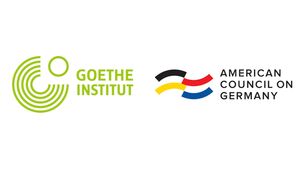
"Citizenship As Political Membership: A Fundamental Strand of 20th and 21st Century European History"
Scripps College, Hampton Room (1030 Columbia Avenue Claremont, CA 91711)

Information
As part of his 2024 Thomas Mann Fellowship, historian and lawyer Dieter Gosewinkel will give a lecture at Scripps College about the critical role of citizenship in 20th-century Europe as the primary marker of political affiliation.
In this talk, Dieter Gosewinkel discusses the importance of citizenship as the key form of political affiliation in 20th century Europe and how it remains central despite modern trends such as globalization and Europeanization. The importance attached to citizenship is what distinguishes the 20th century from previous historical periods and other forms of political affiliation (religious, party, ethnic, nation-state, and social class). With the democratization of political regimes, the expansion of participatory rights, the development of social welfare rights, and the increasing isolation of states from one another, citizenship began to grow in importance for the individual. Even the current processes of transnationalization, Europeanization, and globalization can bring about only gradual and inconsequential changes in the preeminence of citizenship, because the delineation of political membership and the distinction from non-membership remain the primary functions of the state, even as it increasingly loses its nation-state character.
Participant
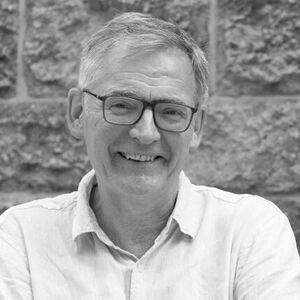
Dieter Gosewinkel is a historian and lawyer whose research focuses on European modern history and the history of citizenship, civil society, constitutional law, and European thought. From 2011 to 2021, he was co-director of the Center for Global Constitutionalism at the WZB Berlin Social Science Center, and is currently a Senior Research Fellow at the Hamburg Institute for Social Research. He also held a number of fellowships, including at the European University Institute in Florence, the Institut d'études avancées de Paris, and the University of Oxford. He has taught at Freie Universität Berlin, Sciences Po, Paris, and others.
Partner
The lecture tour is organized with the European Union Center of California at Scripps College.





